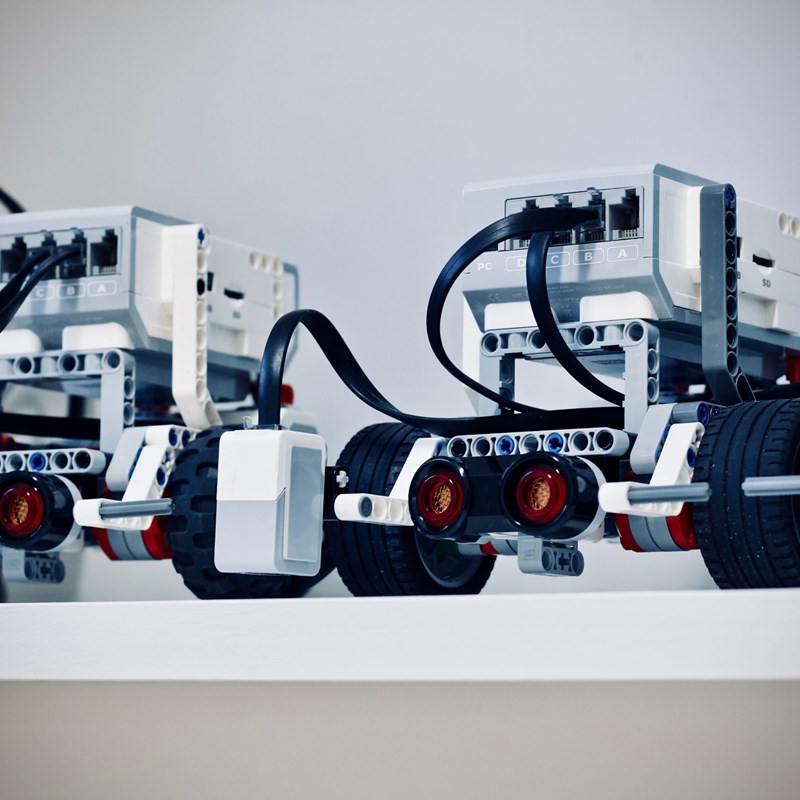
Last week we saw tech enthusiasts from across the world join CES 2021… virtually. Due to the coronavirus pandemic, the influential tech event was unable to go live in Las Vegas and was instead hosted online. Although the buzz around this exciting week may not have been as prevalent as previous years, the tech was something to shout about. Devices like LG’s AI powered refrigerator and Samsung’s robot butler that can do the washing up were unveiled, and there was a lot of talk of smart applications that will surge in the next three years post-lockdown.
The coronavirus pandemic has accelerated a demand for some of the more critical IoT developments. Contact–tracing and social distancing technology are becoming a part of everyday life, and areas like remote health monitoring, air quality control and smart parking are now being considered a top priority in the shift to smarter cities. In what could be viewed as the most crucial time for innovation across the IoT landscape, we look ahead to some of the IoT trends we are most excited about for 2021.
Artificial Intelligence
Artificial Intelligence (AI) continues to make the headlines daily, and this year we are likely to see a rise in more sophisticated applications. Uncertainty in the job market means it’s critical for employers to find the right candidates. AI will enable HR departments to determine a candidate’s cultural fit by using data to measure the quality of a hire. And as more companies introduce long-term working from home policies, we will see an increase in technology like Zoom and Microsoft Teams designed to enhance productivity.
E-Mobility
Electric vehicles (EV) have gathered significant momentum in the last few months and we are seeing a rise in the number of EV producers, battery makers and charging infrastructure. Back in November, the UK government announced a ban on new petrol and diesel cars from 2030, and across the world a number of mobility organisations are scaling up efforts to provide ’intelligent driving capabilities’.
As many of us now rely on home delivery services, operational efficiency is more important than ever. IoT solutions offer the opportunity to connect fleets and drivers, therefore improving vehicle maintenance, fuel, staff, driver safety and wellbeing. Plug-in power is here for the long term and we look forward to the new wave of e-mobility that 2021 will bring.
Smart Retail
Along with many other industries, the pandemic has forced retailers across the world to adapt their operations and pivot to online strategies. Across the UK, online sales reached a record high of 22.3% in March. Now, the introduction of contactless payments, barcode scanning apps and track–and–trace are making retail spaces safer and more future-proof.
A steady increase in the number of pop-up shops have appeared in cities across the world. One man in Miami made headlines for his innovative ‘COVID-19 Essential’ pop-up store, providing much needed items in a safe space. The store even uses thermal imaging cameras to measure customers’ body temperature and it detects if they are wearing a face mask.
In similar instances many restaurants have relied on third party delivery apps like Deliveroo to offer takeaway food during lockdown. Soon we will begin to see restaurants investing in technology to complete take-away orders in-house, making the process much more efficient.
Healthcare
Perhaps the biggest IoT transformation we have seen in recent months relates to healthcare, a topic we have covered previously in this blog. Advances in health–tech have led to improved diagnostics and patient care, as well as better facilities for healthcare workers. Companies like Xenex Disinfection Services have invented self-driving internet-controlled robots that sanitise and disinfect surfaces in hospitals and healthcare centres. They can be remotely connected to apps, emitting UV rays to destroy viruses and other infections.
5G has the potential to expand the healthcare industry in ways we would not have imagined 10 years ago. A recent study showed that Virtual Reality trained surgeons had a 230% boost in their overall performance compared to their traditionally trained colleagues. They were also faster and more accurate in performing surgical procedures. For cancers like mesothelioma, it is vital to identify symptoms as quickly as possible to ensure a better prognosis. With the help of AI, connecting the symptoms with vast amounts of aggregated patient data could allow patients to receive treatment promptly, thereby lengthening life expectancy.
Smart home
The term ‘smart home’ has existed for a while. Just a couple of years ago, turning up the heating thermostat and switching off the lights with a remote control was enough to earn ‘smart’ status. Now, smart homes can predict and adapt based on our preferences and patterns of behaviour.
Smart fridges that know when foods are running low can sync all kitchen appliances together, including smart ovens that tailor cooking times to each member of the family. Ovens and microwaves can be pre-heated, and wines can be chilled remotely.
Amazon’s new security drone connects to sensors across the home, and when triggered by movement, it will fly to that area and send live security alerts to the homeowner. Amazon is releasing a similar product for cars too.
With more of us working and schooling remotely, comfort and security in the home has never been so important. 2021 will see the launch of Amazon, Apple, and Google’s Project Connected Home allowing smart home devices to integrate, making it easier for device manufacturers to create smart home hardware.
Looking ahead
So after what has felt like a year when everything was put on hold, we are looking ahead to 2021 with optimism and excitement. Many industries are now doubling down efforts to come back with a boom. Arkessa’s managed connectivity services enable our partners to connect and deploy smart devices such as sensors and controllers, in both indoor and outdoor environments, securely and efficiently. To find out more, get in touch on connect@arkessa.com.